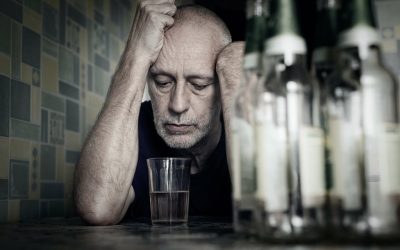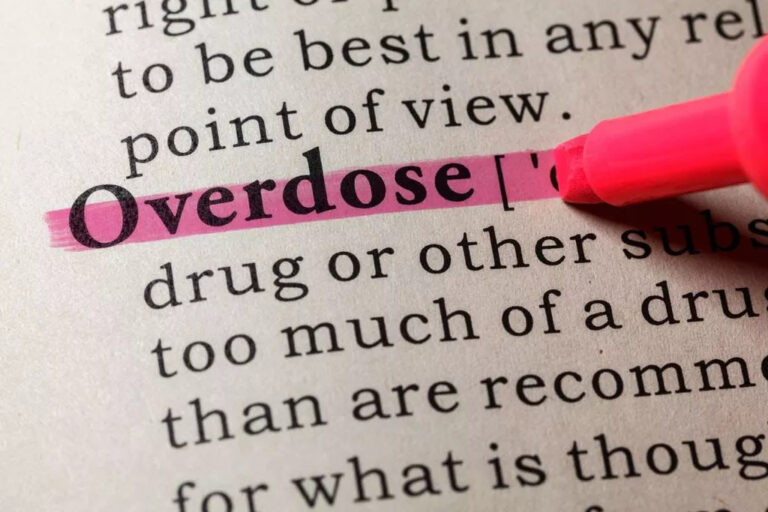What medications treat PTSD, and which is right for me?
Contents
When the symptoms last more than a month, seriously affect one’s ability to function, and are not due to substance use, medical illness, or anything except the event itself, they might be PTSD. Some people with PTSD don’t show any symptoms for weeks or months. PTSD is often accompanied by depression, substance abuse, or one or more of the other anxiety disorders. There is some evidence in animal studies to show that psilocybin, the psychedelic compound found in “magic mushrooms,” may act by stimulating nerve cell regrowth in parts of the brain responsible for emotion and memory. A 2013 study from the University of South Florida found that psilocybin stimulates neurogenesis—the growth and repair of brain cells in the hippocampus, which is the brain’s center for emotion and memory.
However, there were some interesting findings in this study; DCS reduced cortisol and startle reactivity more than placebo when combined with PE . Clearly further research is needed; at this time, however, DCS is not recommended for pharmacotherapy as adjunctive treatment used to facilitate trauma-focused psychotherapy. Clinicians must consider the level of evidence available supporting the specific medication drinking too much alcohol can harm your health learn the facts interventions being considered. Randomized clinical trials which are placebo-controlled and double blinded are the gold standard for guiding pharmacotherapy decision making. More powerful conclusions can be drawn from systematic reviews and meta-analyses that look at all RCTs that have been done with a specific medication. Less strongly supported evidence includes open trials and case reports.
- APA’s Clinical Practice Guideline strongly recommends four interventions for treating posttraumatic stress disorder, and conditionally recommends another four.
- Older children and teens are more likely to show symptoms similar to those seen in adults.
- Combat troops exposed to stress have been found to have lower levels of NPY while resilient Special Forces troops exhibit elevated NPY levels .
- People might “medicate” with alcohol or drugs because they think it helps with sleep, but drugs and alcohol change the quality of sleep and make people feel less refreshed.
- The doctor may prescribe a smaller dose to begin treatment and increase it slowly as a person requires.
- As gene research and brain imaging technologies continue to improve, scientists are more likely to be able to pinpoint when and where in the brain PTSD begins.
PTSD often occurs alongside another mood disorder or substance misuse. Avoidance symptoms might include avoiding people, places, or events that are reminders of the trauma. Alternatively, the person might try to ignore or look past thoughts and feelings that occur about the trauma. Some people under the age of 25 who took sertraline in clinical trials experienced suicidal thoughts or ideation. Even adults might have unexpected changes in mood or emotions after starting SSRIs. Complex PTSD, on the other hand, is related to a series of traumatic events over time or one prolonged event.
Prolonged Exposure »
It is typically delivered over sessions in either individual or group format. Spend time with supportive and caring people — family, friends, faith leaders or others. You don’t have to talk about what happened if you don’t want to. Just sharing time with loved ones can offer healing and comfort.
Doctors generally prescribe the tablet form of paroxetine, not the capsules, to treat mental health conditions. The capsules contain a lower dose of the medication than necessary. One goal of treatment is to attempt to develop or recapture feelings of trust in others and the world. This can take time, but participating in healthy relationships is a positive step. Some medications for depression may reduce the symptoms of complex PTSD.

Check theU.S. Food and Drug Administration website for the latest information on patient medication guides, warnings, or newly approved medications. Many factors play a part in whether a person will develop PTSD. Other factors, called resilience factors, can help reduce the risk of the disorder. Older children and teens are more likely to show symptoms similar to those seen in adults. They may also develop disruptive, disrespectful, or destructive behaviors. Multimedia NIMH videos and podcasts featuring science news, lecture series, meetings, seminars, and special events.
No, you will not need to talk about the details of your trauma. However, your provider may ask for some basic information about your trauma—like the type of trauma and when what causes alcohol addiction it happened—when you first meet. A tricyclic antidepressant which acts by altering naturally occurring chemicals which help brain cells communicate and can lift mood.
What is post-traumatic stress disorder, or PTSD?
Group therapy can offer a way to connect with others going through similar experiences. Your therapist can help you develop stress management skills to help you better handle stressful situations and cope with stress in your life. Medications help you stop thinking about and reacting to what happened, including having nightmares and flashbacks. They can also help you have a more positive outlook on life and feel more “normal” again. Try to spend time with other people, and confide in a trusted friend or relative. Meetings and Events Details about upcoming events — including meetings, conferences, workshops, lectures, webinars, and chats — sponsored by the NIMH.

There has been long-standing interest in using beta blockers to prevent PTSD. Unfortunately, the evidence at the current time does not support this . Beta blockers reduce both central and peripheral manifestations of hyperarousal and may reduce aggression as well. They may be used for comorbid conditions such as performance anxiety in the context of social anxiety disorder. Some types of psychotherapy target PTSD symptoms, and others focus on social, family, or job-related problems. Effective psychotherapies tend to emphasize a few key components, including learning skills to help identify triggers and manage symptoms.
Narrative exposure therapy helps individuals establish a coherent life narrative in which to contextualize traumatic experiences. As conducted in research studies, treatment consists of 16 individual sessions, each lasting between 45 minutes and one hour. This chronic heavy drinking leads to serious risk of dementia, study warns intervention is intended for individuals who have experienced a single traumatic event. Prolonged exposure is a specific type of cognitive behavioral therapy that teaches individuals to gradually approach trauma-related memories, feelings and situations.
Examples include angry, reckless or self-destructive behavior, sleep problems, concentration problems, increased startle response and hypervigilance. You can learn more about different types of psychotherapy on the NIMH website. Avoidance symptoms may cause people to change their routines. For example, after a serious car accident, a person may avoid driving or riding in a car. War Veterans with PTSD and alcohol problems tend to binge drink. Binge drinking is when a person drinks a lot of alcohol (4-5 drinks or more) in a short period of time (1-2 hours).
The FDA has approved only paroxetine and sertraline for treating PTSD. The focus is more on changing how you deal with the stress from the event. CPT is a 12-week course of treatment, with weekly sessions of minutes. Depending on your situation, group or family therapy might be a good choice for you instead of individual sessions. Medications are conditionally recommended by the APA Clinical Practice Guideline for the Treatment of PTSD .
Exposure therapy helps people learn to manage their fear by gradually exposing them, in a safe way, to the trauma they experienced. As part of exposure therapy, people may think or write about the trauma or visit the place where it happened. This therapy can help people with PTSD reduce symptoms that cause them distress. Some people develop post-traumatic stress disorder after experiencing a shocking, scary, or dangerous event. The most effective treatments for SUD include relapse prevention, cognitive behavioral therapy, and contingency management. Some people try to cope with PTSD symptoms by using drugs or alcohol.
What is complex PTSD: Symptoms, treatment, and resources to help you cope
You may find yourself avoiding his or her attempts to talk about the trauma or feeling hopeless that your loved one will get better. At the same time, you may feel guilty that you can’t fix your loved one or hurry up the process of healing. The person you love may seem like a different person than you knew before the trauma — angry and irritable, for example, or withdrawn and depressed. PTSD can significantly strain the emotional and mental health of loved ones and friends. You and your doctor can work together to figure out the best medication, with the fewest side effects, for your symptoms and situation.
Symptoms may result from changes in regions of the brain that deal with emotion, memory, and reasoning. Affected areas may include the amygdala, the hippocampus, and the prefrontal cortex. Having minimal to no social support after the trauma has occurred.
Avoiding people, places, and things that remind you of the traumatic event. Patients with PTSD or anxiety disorders may be very aware of their somatic reactions, and it is important to start low and go slow on dosage adjustments to improve patient adherence. In addition to corticotropin releasing factor and adrenocorticotropin hormone , other neuropeptides such as Substance P and Neuropeptide-Y appear to play a role in PTSD . Combat troops exposed to stress have been found to have lower levels of NPY while resilient Special Forces troops exhibit elevated NPY levels . Perhaps potentiation of this neuromodulator could improve the resiliency of the brain’s capacity to cope with trauma. It promotes shared decision-making by increasing knowledge for the risks of chronic benzodiazepine use in those with PTSD.

The selective serotonin reuptake inhibitor medications sertraline and paroxetine are approved by the Food and Drug Administration for PTSD treatment. Psychotherapy (sometimes called “talk therapy”) involves talking with a mental health professional to treat a mental illness. Talk therapy treatment for PTSD usually lasts 6 to 12 weeks, but it can last longer. Research shows that support from family and friends can be an important part of recovery. Post-traumatic stress disorder is a disorder that develops in some people who have experienced a shocking, scary, or dangerous event. Getting timely help and support may prevent normal stress reactions from getting worse and developing into PTSD.
Treatment
A bad trip has the potential to mentally scar the individual who experiences it. Thus, atypical antipsychotics are recommended as treatment for co-occurring psychotic symptoms and mood disorders in PTSD, but not for treatment of core PTSD symptoms. Patients with personality disorders may be treated effectively, but medications alone are unlikely to address all the needs of those with more complicated trauma histories .
Simple interventions, such as enlisting family/caregiver support, can go a long way to improve adherence. Exceptions may occur for patients based upon their individual histories of side effects, response, comorbidities and personal preferences. However, there is evidence that different antidepressants have varying effects on destabilizing mood in bipolar disorder . Another example would be intolerable sexual dysfunction or gastrointestinal side effects due to the effects of increased serotonin levels in the peripheral nervous system.
Is complex PTSD a separate condition?
The neurotransmitter serotonin has a well-recognized role in the experience of mood and anxiety disorders. The activity of this neurotransmitter in both the peripheral and central nervous systems can be modulated by SSRIs. People with PTSD should talk about all treatment options with a therapist.
 แทงบอล เล่นบอล แทงบอลออนไลน์ เล่นบอลออนไลน์ ts911 ufabet bet911 รับแทงบอล เว็บแทงบอล อยากแทงบอล เว็บแทงบอลออนไลน์ เว็บแทงบอลออนไลน์ เว็บเล่นบอลออนไลน์ เว็บพนันบอลออนไลน์ เว็บพนันบอลดีที่สุด เว็บพนันบอลที่ดีที่สุด เว็บแทงบอลดีที่สุด เว็บแทงบอลที่ดีที่สุด เว็บเล่นบอลดีที่สุด เว็บเล่นบอลที่ดีที่สุด คาสิโน คาสิโนออนไลน์ ตัวแทนUFABET
แทงบอล เล่นบอล แทงบอลออนไลน์ เล่นบอลออนไลน์ ts911 ufabet bet911 รับแทงบอล เว็บแทงบอล อยากแทงบอล เว็บแทงบอลออนไลน์ เว็บแทงบอลออนไลน์ เว็บเล่นบอลออนไลน์ เว็บพนันบอลออนไลน์ เว็บพนันบอลดีที่สุด เว็บพนันบอลที่ดีที่สุด เว็บแทงบอลดีที่สุด เว็บแทงบอลที่ดีที่สุด เว็บเล่นบอลดีที่สุด เว็บเล่นบอลที่ดีที่สุด คาสิโน คาสิโนออนไลน์ ตัวแทนUFABET



